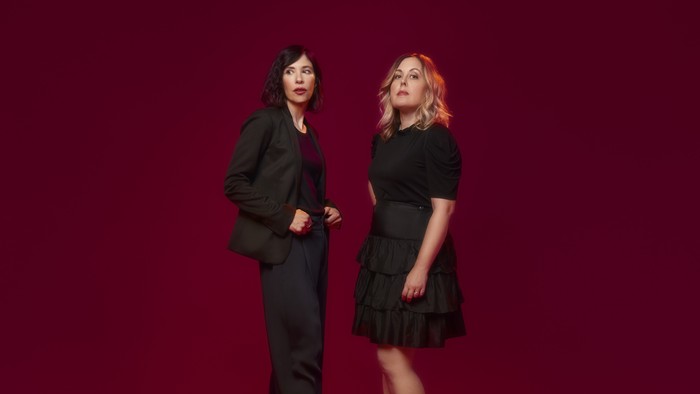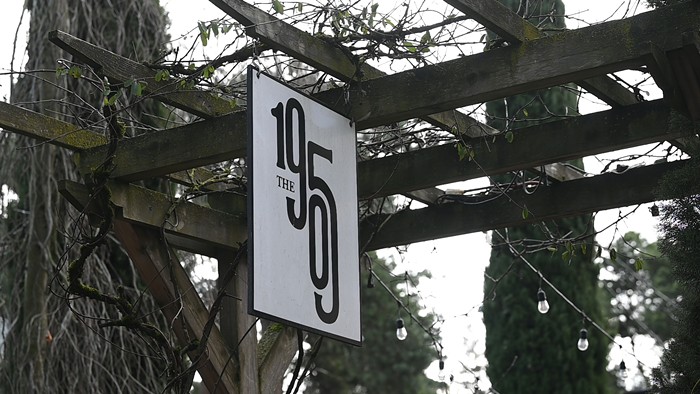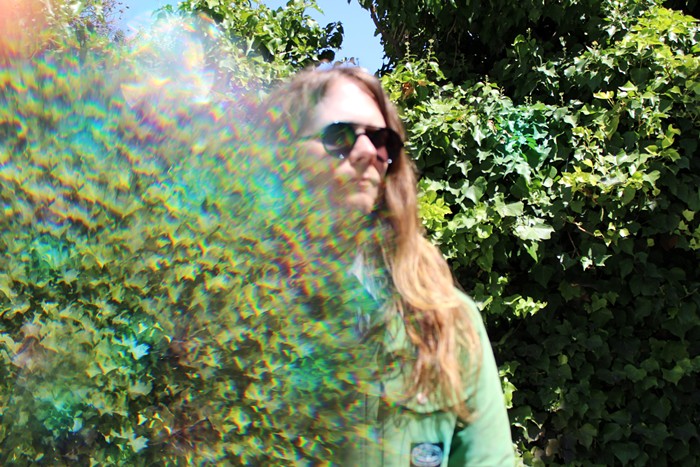A GLASS OF WINE was glued to his hand all night—Napoleon's favorite, he said. But there could be no wine without food.
"Mattress?" Courtney Taylor (AKA Courtney Taylor-Taylor) called from the dining room. His chef trotted in from the industrially outfitted stainless steel kitchen. "Do you have a little snack that we could enjoy right now, just so we could enjoy the wine?" Taylor turned back to me. "Food is just an excuse to drink wine in my world."
A few minutes later Mattress returned carrying an elegantly arranged plate of thinly sliced apples, pears, tangerines, and nuts. "This doesn't go with wine at all," Taylor laughed. "Fruit doesn't go with wine," he said. "It doesn't. Do we have some crackers or cheese?"
The moment was surreal—like something out of Dig!, the critically acclaimed 2004 documentary that paraded the diva-ish rock-star delusions of Taylor and his band, the Dandy Warhols, as antithetical to rock's authenticity and dirty rebel yell. Indeed, with a selective eye, I could tell the same story. For dinner we had butternut squash soup, seafood risotto, and steak.
But Dig!'s portrait of the Dandys wasn't exactly fair—or at least it's not accurate today. Mattress isn't so much thankless help as he is a member of the Dandys' extended family. Over 17 years together, Taylor & Co. have built a machine and put their friends on it. Mattress has been palling around since 1995. His brother does the lights. And when it comes to telling stories of bygone debauchery, Mattress gets huge, weeping laughs.
It's a far cry from the infamous scene in Dig! where the band crashes the Brian Jonestown Massacre's scorched junkie pad for a photo shoot. Taylor says the idea wasn't the band's—that they were coerced by director Ondi Timoner. I asked how the film affected the Dany's friendship with Timoner. "It just made it clear that there never was a friendship," Taylor said. From across the table Pete Holmström, the blissfully stoic guitarist, concurred.
There's a difference between artists and entertainers, Taylor says. "We just got promoted to a level that we weren't good enough at. We weren't good enough at doing interviews or being entertainers." It's true—while Taylor is intensely quotable in his fiery absolutes, he is constantly contradictory and scatterbrained. He hates record labels, but he wants back on one. He is vain, but plagued with self-doubt. Writing songs, he says, "makes me feel like my littlest, pathetic, shitty, selfish, horrible feelings are real, important, and that I am able to overcome them," yet he speaks passionately of Homer's epics and the classical literary canon.
Taylor makes no bones, however, about his desire for wealth. "I want to be rich," he says. "I grew up poor." And say what you will about his music, he succeeded. When "Bohemian Like You" became a hit two years after its release, Taylor spent the million-dollar check on the Odditorium, a 12,000-square-foot studio and clubhouse in the Pearl.
Indeed, Taylor's lust for life is well nourished. He's enthralled by his wife, 10-month-old son, and work. Referring to the studio, a rough mix, or the people around him, he asked continually, as if he couldn't believe the joyous truth: "How fun is this? This is my job?"
Throughout the evening other members of the family spilled in. Tonight it was 1776, a young band who Taylor's been shepherding through his business channels. But it's not a money thing—he clearly loves these scruffy kids, both as friends and musicians. As their record played, he sang and played along in the air, his hands mimicking every note of complex solos. "They know who they are," Taylor says of his protégés. "And they don't give a fuck what anyone else thinks." He might as well have been speaking of himself.



















